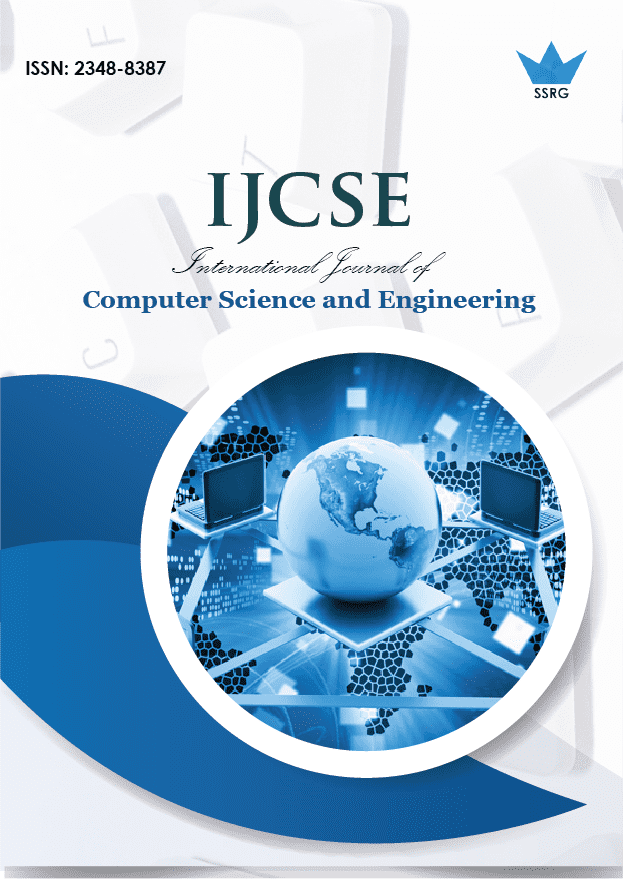Mobile Application Framework for Software Engineering

| International Journal of Computer Science and Engineering |
| © 2018 by SSRG - IJCSE Journal |
| Volume 5 Issue 4 |
| Year of Publication : 2018 |
| Authors : S.Shanmugapriya, Dr.K.Alagarsamy, A.Saranya |
How to Cite?
S.Shanmugapriya, Dr.K.Alagarsamy, A.Saranya, "Mobile Application Framework for Software Engineering," SSRG International Journal of Computer Science and Engineering , vol. 5, no. 4, pp. 4-10, 2018. Crossref, https://doi.org/10.14445/23488387/IJCSE-V5I4P102
Abstract:
Mobile app progress is a comparatively new occurrence that is escalating quickly due to the ubiquity and reputation of smart phones among end-users. Developing a mobile app involve first to decide the platforms the app will run, and then to expand specific solution. Availability of the framework improves the quality of evaluation creation in IT answer provider, and thus the performance and costs of their clarification. Apps that are available for a broad collection of mobile approach can attain a large user base, and can accordingly produce more proceed either all through app purchases or via in-app advertisement. In this paper originally Mobile devices were adopt as consumer devices. However, the enterprise world over have correctly taken the leap and in progress using the ubiquitous technology for organization its recruits as well as to attain out to the customers.
Keywords:
Mobile platforms, Application improvement, Frame work, Mobile improvement
References:
[1] Y. e. a. Natchetoi, “Service oriented architecture for mobile applications,” in 1st international workshop on Software architectures and mobility/International Conference on Software Engineering, Leipzig, Germany, 2008, pp. 27–32.
[2] C. Teng and R. Helps, “Mobile application development: Essential new directions for it,” in Information Technology: New Generations (ITNG), IEEE, Ed., Las Vegas, NV, April 2010, pp. 471–475.
[3] A. Charland and B. Leroux, “Mobile application development: Web vs. native.” Queue - Data, vol. 9, no. 4, p. 20, 2011.
[4] “Volvo it is a global company, and a part of the volvo group.” [Online]. Available: http://www.volvoit.com/volvoit/global/ en-gb/about us/Pages/aboutus.aspx
[5] J. C. Mitchell, Concepts in Programming Languages. United States of America: Cambridge University Press, 2003.
[6] S. K. Satav, S. K. Satpathy, and K. J. Satao, “Design and implementation of an integrated development environment for multiple languages using c,” International Journal of Advances in Science and Technology, vol. 2, no. 3, p. 77, March 2011.
[7] “Software licensing.” [Online]. Available: http://its.uncg.edu/Software/ Licensing/
[8] X. Shu, Z. Du, and R. Chen, “Research on mobile location service design based on android,” in Wireless Communications, Networking and Mobile Computing, 2009, pp. 1–4.
[9] G. Hartmann, G. Stead, and A. DeGani, “Crossplatform mobile development,” March 2011. [Online]. Available: http://www.mole-project.net/images/documents/deliverables/ WP4 crossplatform mobile development March2011.pdf
[10] J. Parker, “Pros and cons of cross-platform mobile app development tools,” March 2013. [Online]. Available: http://www.techrepublic.com/blog/app-builder/ pros-and-cons-of-cross-platform-mobile-app- evelopment-tools/2379.
[11] “Voice of the Next-Generation Mobile Developer, Appcelerator / IDC Q3 2012 Mobile Developer Report,” http://www.appcelerator.com.s3. amazonaws.com/pdf/Appcelerator-Report-Q3-2012-final.pdf.
[12] B. Glaser and A. Strauss, The discovery of Grounded Theory: Strategies for Qualitative Research. Aldine Transaction, 1967.
[13] S. Adolph, W. Hall, and P. Kruchten, “Using grounded theory to study the experience of software development,” Empirical Softw. Engg., vol. 16, no. 4, pp. 487–513, 2011.
[14] J. W. Creswell, Qualitative inquiry and research design : choosing among five approaches (2nd edition). Thousand Oaks, CA: SAGE, 2007.
[15] S. Adolph, P. Kruchten, and W. Hall, “Reconciling perspectives: A grounded theory of how people manage the process of software development,” J. Syst. Softw., vol. 85, no. 6, pp. 1269–1286, 2012.
[16] K. Karhu, T. Repo, O. Taipale, and K. Smolander, “Empirical observations on software testing automation,” in Proceedings of the International Conference on Software Testing Verification and Validation (ICST). IEEE Computer Society, 2009, pp. 201–209.
[17] G. Coleman and R. O’Connor, “Investigating software process in practice: A grounded theory perspective,” J. Syst. Softw., vol. 81, no. 5, pp. 772–784, 2008.
[18] M. Greiler, A. van Deursen, and M.-A. Storey, “Test confessions: a study of testing practices for plug-in systems,” in Proceedings of the International Conference on Software Engineering (ICSE). IEEE Computer Society, 2012, pp. 244–254.
[19] G. Coleman and R. O’Connor, “Using grounded theory to understand software process improvement: A study of Irish software product companies,” Inf. Softw. Technol., vol. 49, no. 6, pp. 654–667, 2007.
[20] M. Sulayman, C. Urquhart, E. Mendes, and S. Seidel, “Software process improvement success factors for small and medium web companies: A qualitative study,” Inf. Softw. Technol., vol. 54, no. 5, pp. 479–500, 2012.

 10.14445/23488387/IJCSE-V5I4P102
10.14445/23488387/IJCSE-V5I4P102